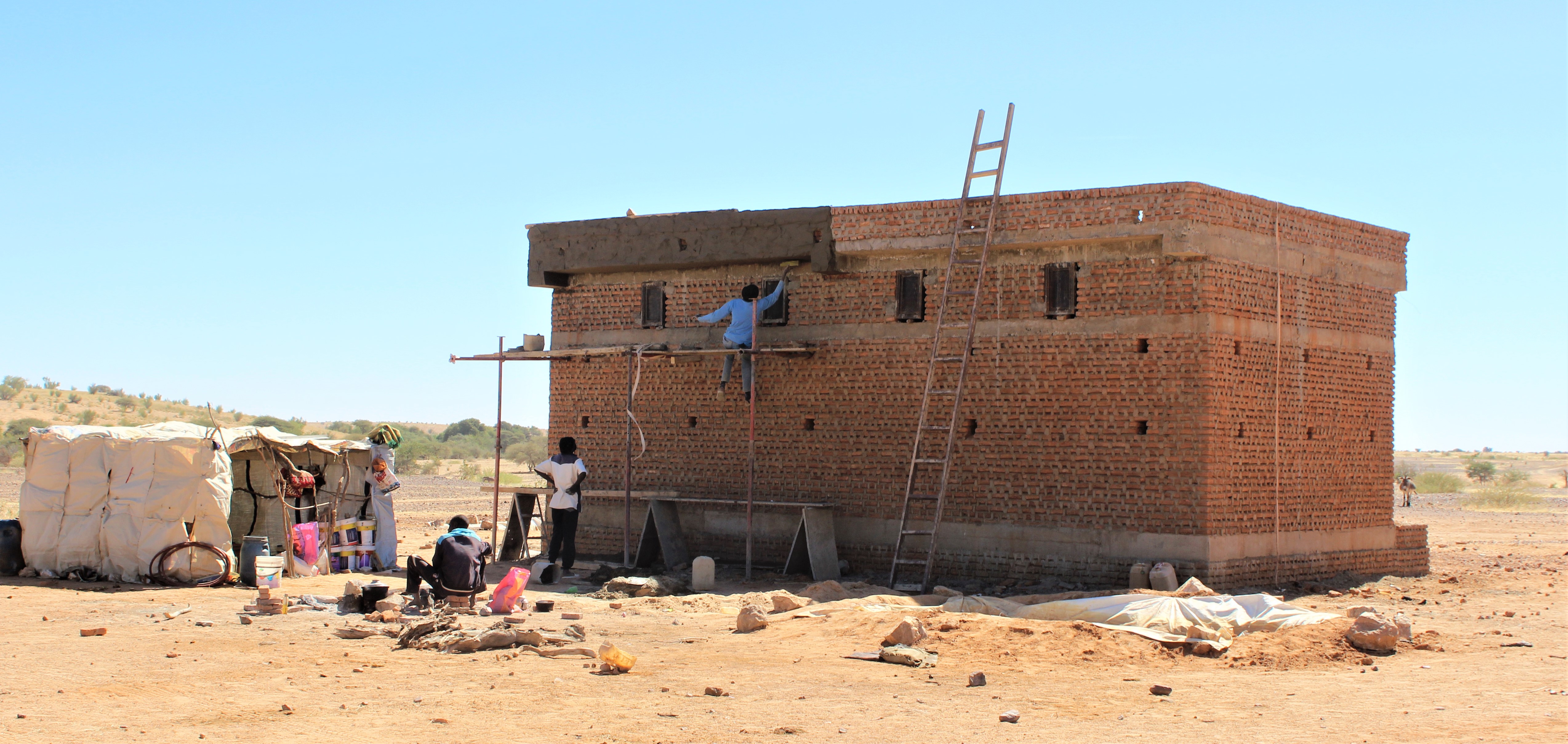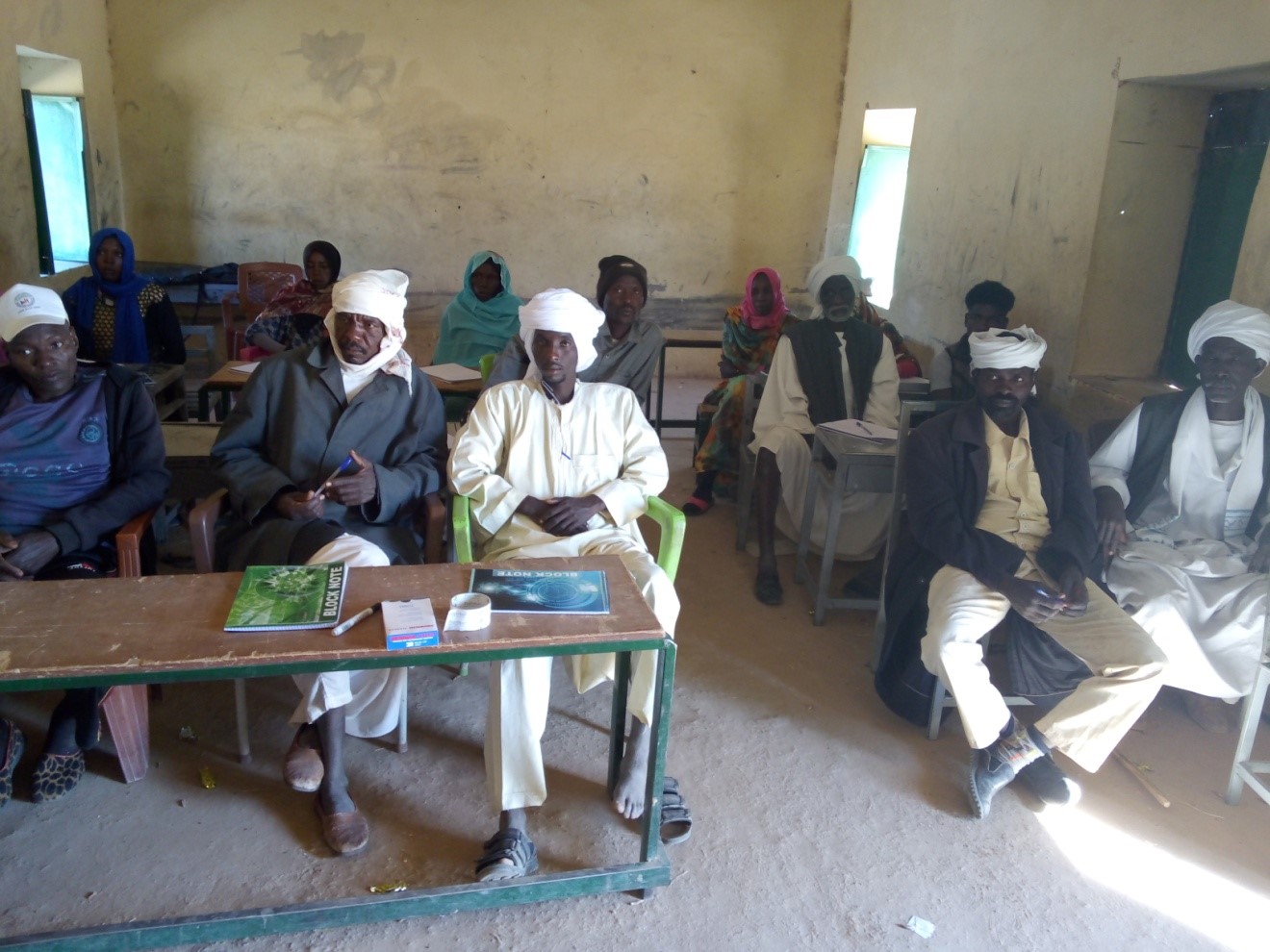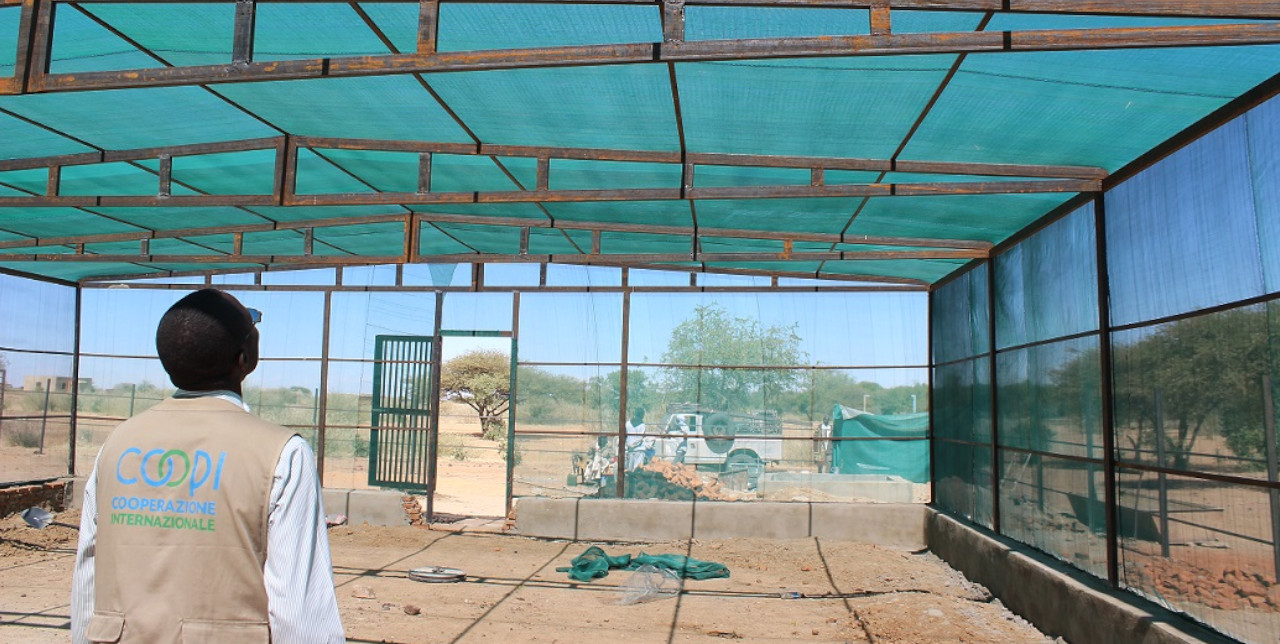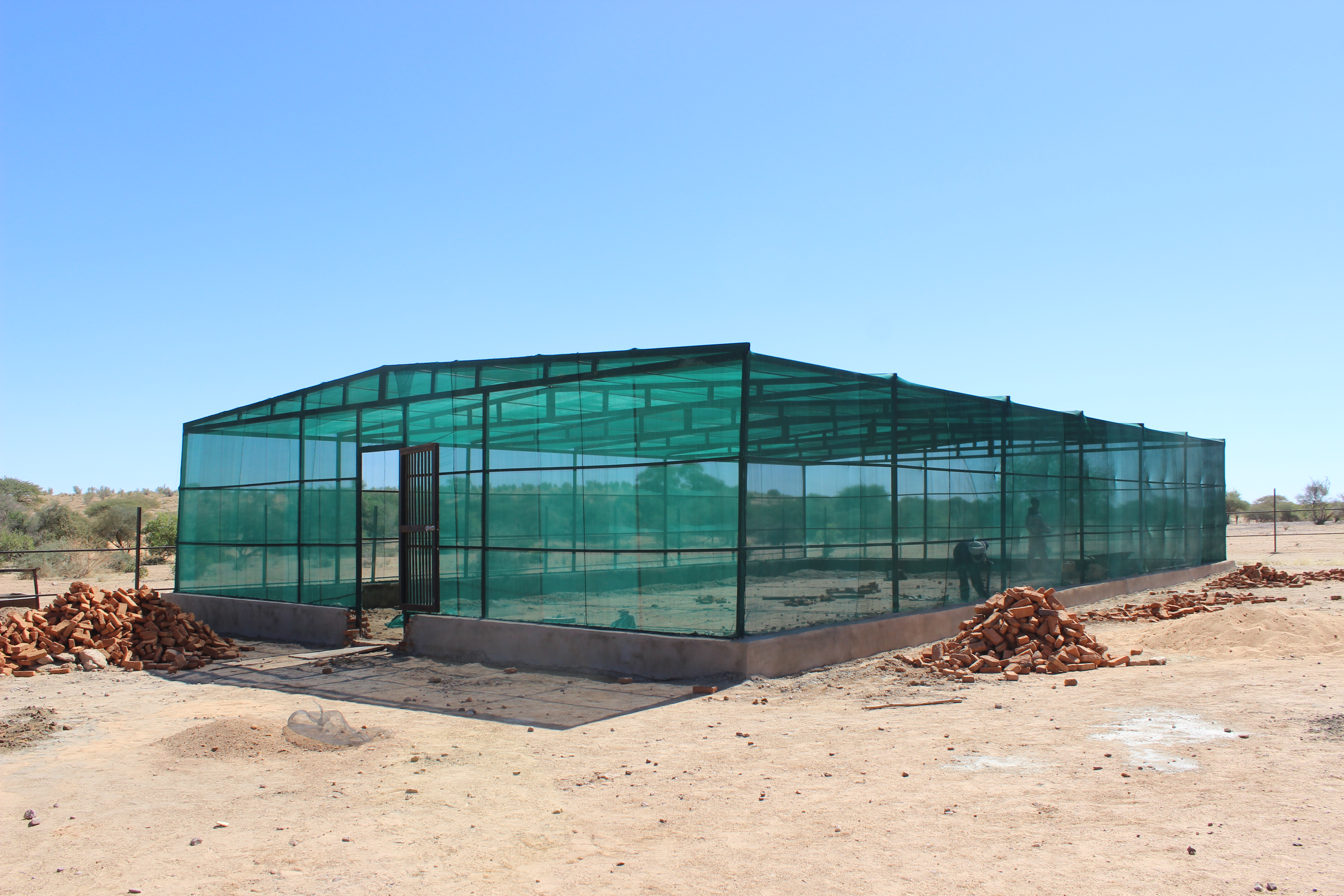04-08-2020 | di COOPI
North Darfur. Seedbanks and nurseries guarantee food security
Sudan – In the latest month, COOPI completed the construction of seedbanks and nurseries in Meski and Kerfu (North Darfur). These infrastructures, built in the framework of the European Union funded project “Mitigate the effect of El Niño for host and IDP Population in North Darfur State”, will enhance the community’s capacity to mitigate the impacts that climate change has on food security.
As the rainy season has now started, communities will soon be able to use nurseries and seedbanks. As soon as the dam will be filled, inhabitants will use nurseries to grow native trees’ seedlings, vegetables such as tomatoes and various types of fruit-trees. Later, they will transplant the seedlings to the gardens and to the catchment areas around the dams. Thanks to this infrastructure providing a protected space designed for seedlings’ plantation, plants will grow without the risk of being flood by water, blown by the wind or eaten by animals.
The new nursery
Thanks to the new nurseries, which are managed by local farmers’ groups, the community will be able to increase their profits selling surplus at the market in nearby towns or in the capital. The profits will flow back into the community and they will be used to buy new seeds, turning the nursery into a sustainable income generating activity and contributing to increase food security resilience. Besides, increased vegetation through transplantation of native trees around the dams will protect the soil, keeping it moist and reducing desertification.
Seedbanks play a fundamental role as well. COOPI trained a special seedbank committee - which includes members of the local Savings Groups, Agropastoral Field School members, community chiefs, leaders and government representatives – which is now in charge of the seedbank. The committee will receive a starting seed capital to kick-start the operations. Seedbanks will enable the community to mitigate and adapt environmental stresses and changes, and it will ensure continuous access to high quality and affordable seeds.

The new seedbank
A community member explains:
“Now we have the seedbank, our seeds are safely stored and not damaged by insects like those purchased at the shop. We can also borrow seeds when our families are in need, so our family can survive and get through very difficult times and pay back later”.
Before COOPI intervention communities had to buy seeds in far-away towns, where the prices were higher and quality much lower: farmers often got damaged seeds or seeds which were not suitable for specific soil.

Training session
Moreover, farmers who cannot afford to buy seeds for planting season will be able to ask for a ‘soft loan’ of seeds to be given back after the harvest. Finally, members of the seedbank committee will frequently gather to exchange ideas, information and experiences which will contribute to the overall capacity and knowledge of the entire community.
North Darfur is one of the areas most affected by El Nino. Thanks to the support of the European Union and the implementation of this project, COOPI assures food security and a sustainable system for the most vulnerable communities.




 Sudan
Sudan
